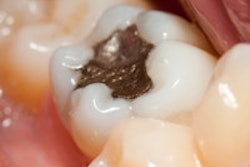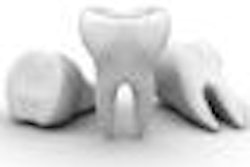Researchers from the University of Leeds School of Chemistry have developed a peptide they say could be used to remineralize teeth.
The peptide, known as P 11-4, assembles together into fibers under certain conditions. In practice, this means that when applied to a tooth, the fluid seeps into the micropores caused by demineralization, where it forms a gel. This gel then provides a scaffold that attracts calcium and regenerates the tooth's mineral from within.
The technique was recently taken out of the laboratory and tested on a small group of adults whose dentist had spotted the initial signs of caries. The results from this small trial have shown that P 11-4 can indeed reverse the damage and regenerate the tooth tissue, according to the researchers.
"The results of our tests so far are extremely promising," stated Paul Brunton, who is overseeing the patient testing at the University of Leeds Dental Institute, in a press release. "If these results can be repeated on a larger patient group, then I have no doubt whatsoever that in two to three years time this technique will be available for dentists to use in their daily practice."
The study is being funded by Credentis, a Swiss company that has licensed the technology and is preparing to introduce P 11-4 to dentists worldwide.



















